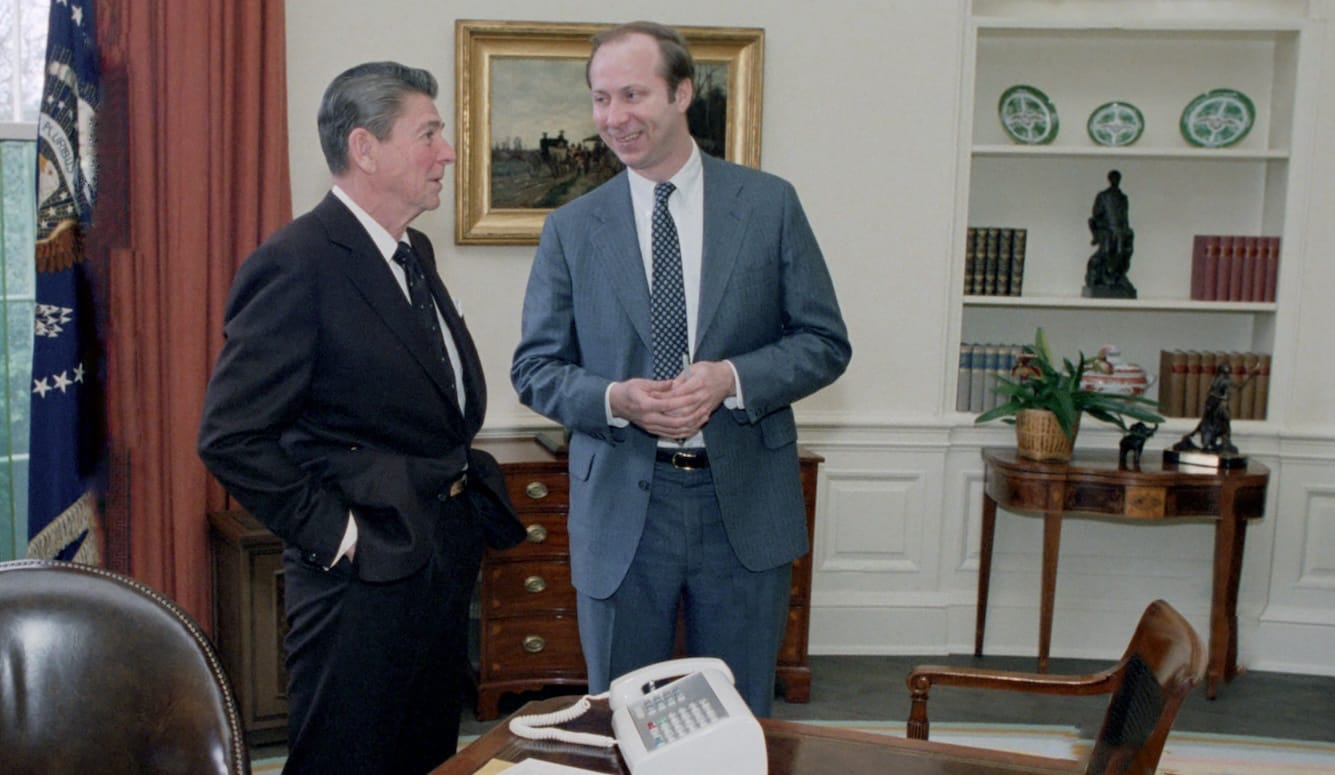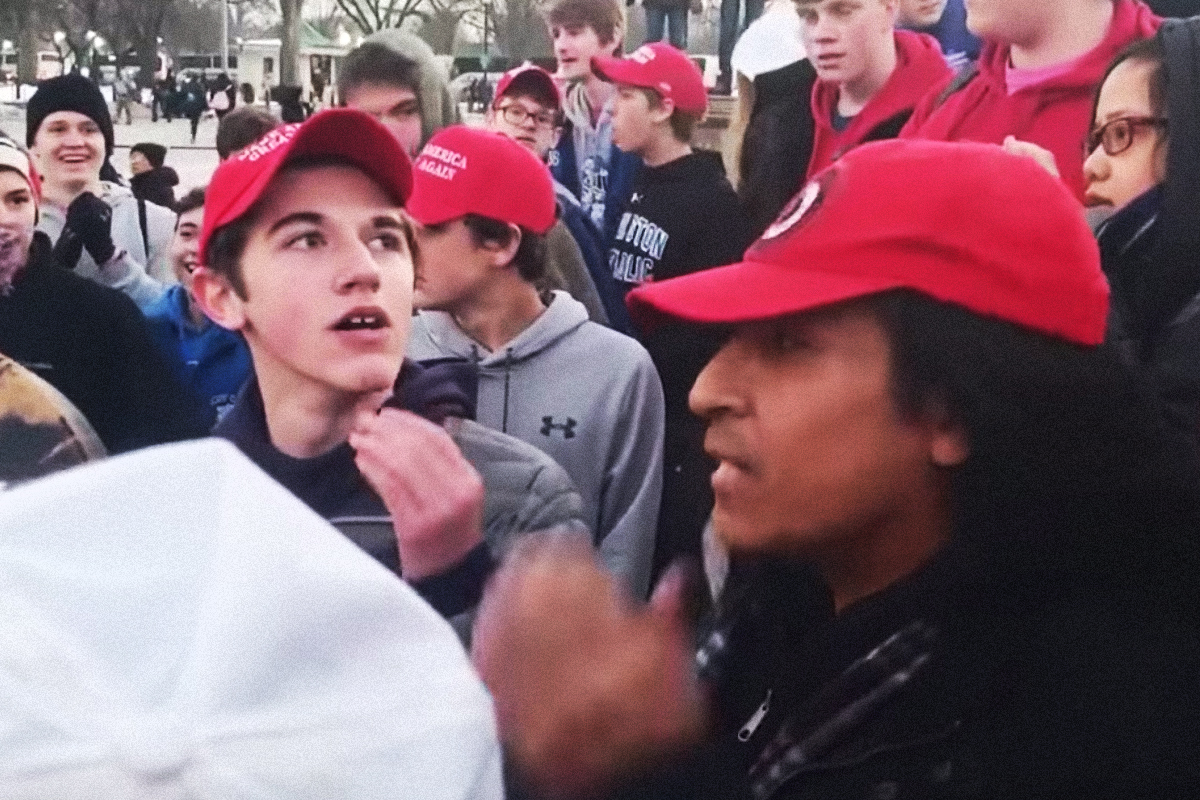United States
Repairing America’s Broken Civic Spirit: Lessons from David Gergen (1942–2025)
His ability to provide valued counsel to Presidents of both major parties originated from a deep love for his country tempered by decades of accumulated political wisdom.

This month marked the passing of American public-affairs expert David Gergen (1942–2025), a prominent media commentator and author who served as White House advisor to Richard Nixon, Gerald Ford, Ronald Reagan, and Bill Clinton. As I learned when I interviewed Gergen on my podcast three years ago, his ability to provide valued counsel to presidents of both major parties originated from a deep love for his country tempered by decades of accumulated political wisdom.
Our conversation centred on his bestselling 2022 book, Hearts Touched with Fire: How Great Leaders Are Made, in which Gergen appeals for more engaged dialogue among Americans of divergent political beliefs. Gergen, who went on to found and direct the Center for Public Leadership at Harvard’s John F. Kennedy School of Government, appealed to early American history to make his case. He pointed out that during America’s foundational period in the late eighteenth century, this nation of just three million inhabitants managed to produce no fewer than six world-class leaders: George Washington, Thomas Jefferson, James Madison, Alexander Hamilton, John Adams, and Benjamin Franklin. Today’s America is home to more than 100 times as many people, yet most of us would be hard-pressed to name a single figure of the same stature. What happened?
“We’ve substituted celebrities for heroes,” Gergen told me. He noted that from Harry S. Truman to George H.W. Bush, every president served in the military—including Dwight D. Eisenhower, John F. Kennedy, Lyndon B. Johnson, Nixon, Ford, Carter, and Reagan. Since then, none has, excepting George W. Bush’s stint in the Texas National Guard.
Gergen, who was just a few days shy of his eightieth birthday when he spoke with me, said it was time for members of the baby-boomer generation to step away from the commanding heights of American political leadership, and for more young Americans to take up public service. Echoing the memorable slogans of JFK, he exhorted members of the Millennial generation and its successors to regard such service as an honour, not a burden.
Through such service, Gergen told my listeners, “people in urban America [would be exposed to] rural America, and vice versa. I think people who get exposed to that want change. People want to be proud of what their generation does. They want to be able to look back thirty or forty years later and know they made a difference while they were in power.”
Gergen referenced Defining Deviancy Down, the famously incisive 1993 essay by Democratic Senator and social scientist Daniel Patrick Moynihan (1927–2003), whose title reflects the tendency of societies to accommodate self-destructive lifestyles by lowering the standards of what constitutes acceptable behaviour.

While Moynihan’s essay focuses primarily on family stability and crime, Gergen extrapolated the message more broadly, and wondered aloud how much more division and ugliness Americans were willing to accept: “We all bemoan the fact that our civic culture is disappearing. You can just feel it. But at some point, I think, we’re going to snap back. We’re going to pay a heavy price unless we snap back.”
Gergen’s implicit denunciation of Donald Trump’s caustic, hyper-populist political style hit a familiar progressive political chord. But at the same time, his unapologetic embrace of Moynihan’s belief in civic engagement and self-improvement echoes traditional ideals embraced by many conservatives. Gergen emphasised the importance of education, but also said he believed that the heavy pressures imposed on children by mainstream American educational practices can inhibit creativity and optimism among young people.
Again, there was something in this message to attract both sides of the culture war: “We’re worried way too much about what they’re teaching kids about sexuality or systemic racism. We ought to be teaching our kids about the possibilities in life. You can be a [civil-rights champion] John Lewis. You can be a John McCain. You can be an MLK. You can be an Eleanor Roosevelt. But you need to know where those people came from.”
The phrase “hearts touched by fire” comes from a famous speech by legendary US Supreme Court Justice Oliver Wendell Holmes Jr. (1841–1935). Being the scion of a wealthy Boston family, Holmes could have ducked military service during the American Civil War, but instead enlisted voluntarily in the Massachusetts militia. He was wounded three times, the last time left for dead. (He also contracted a near-fatal case of dysentery, a disease that contributed to an estimated two thirds of all Civil War fatalities.)
In 1884, two decades later, Holmes delivered a Memorial Day speech looking back on the war’s meaning. “The generation that carried on the war has been set apart by its experience,” he told an audience in Keene, New Hampshire. “Through our great good fortune, in our youth our hearts were touched with fire. It was given to us to learn at the outset that life is a profound and passionate thing.”
Three years later, Gergen’s words still echo powerfully for me. And I’m left to wonder who will heed his call. What great leaders will emerge—if any?
One of my teachers was the great Jewish Hungarian-American cellist János Starker (1924–2013), whose two older brothers (both violinists) were killed by the Nazis during World War II. Starker spoke often about “carrying the torch,” by which he meant carrying on the refined musical legacy that he and other émigrés had brought with them from Europe. He channelled the same ennobling spirit that Holmes communicated in his 1884 Memorial Day speech: “As life is action and passion, it is required of a man that he should share the passion and action of his time at peril of being judged not to have lived.”
David Gergen’s message was that you don’t need to be a great musician, soldier, judge, or politician to act on this message: All of us, as engaged citizens, can help carry the torch for a better society.






